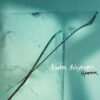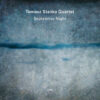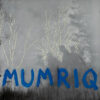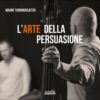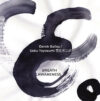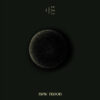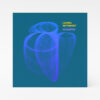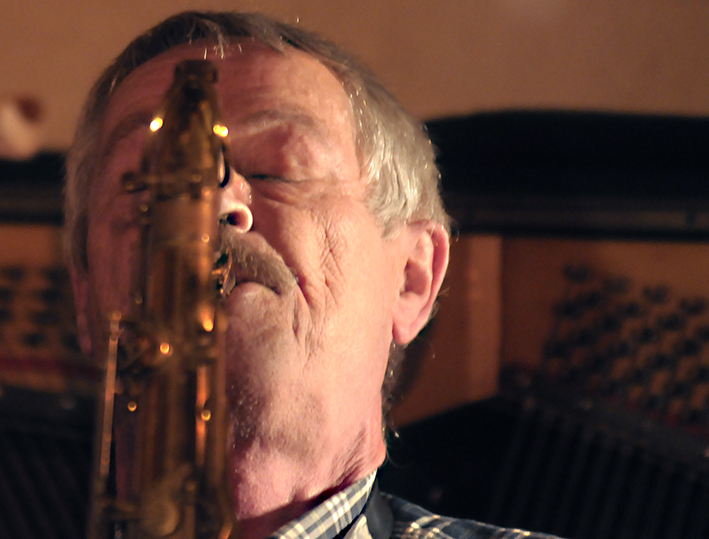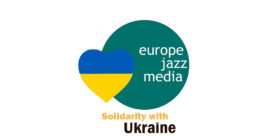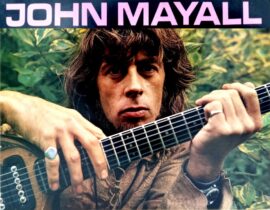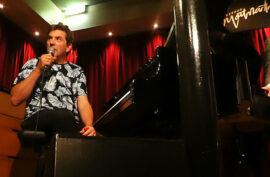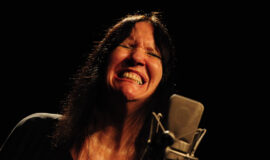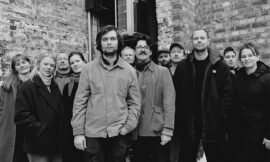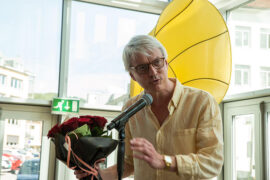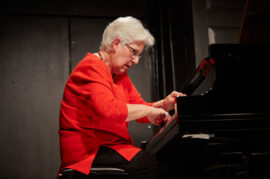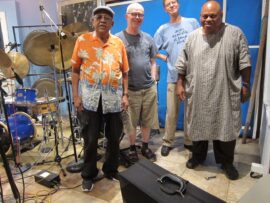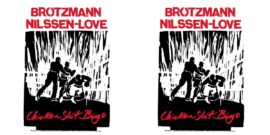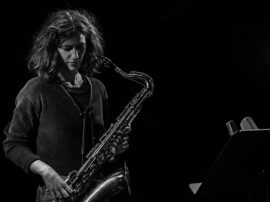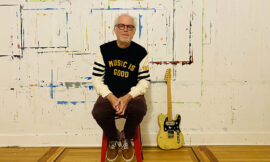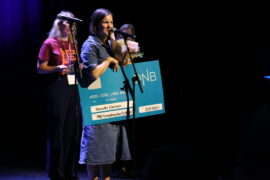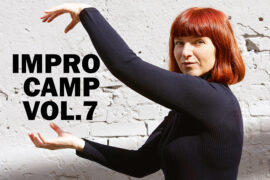The Ukrainian writer and cultural worker, Sergei Starkowski — living in Berlin and a close friend of Joel Grip, one of the organisers of the Swedish Hagenfesten — talked to Roland Keijser at the Hagenfesten in 2012. Here is Keijser’s story in his own words, as told to Sergei Starkowski.
Here Keijser is telling some incredible stories. Keijser talks about his work with progressive rock groups in Sweden, he talks on macrobiotics, woodshedding [vedboding, as Keijser would express it in jocular Swedish] during a sabbatical from music, on playing with Bengt Berger and many more.
Here is Starkowski’s transcription of Roland Keijser’s tale, in Keijser’s own words as told to Starkowki in the summer of 2012 at the Hagenfesten, close to Dala-Floda, in Swedish Dalarna.
[We have retained most of the text as-is, but have edited slightly Starkowski’s original text to ensure that Keijser’s meaning and his oral, colloquial swenglicisms, come through. Edits by johan/salt peanuts*].
Roland Keijser speaks
Writing. China
In the mid-60’s when I came to Uppsala to study at the university — at least that was the supposed reason — I immediately got connected with the local newspaper. This is maybe number 5 or 6 or 7 in Sweden among the big daily newspapers. I got involved with writing a lot of poetry critique and then later on music, of course. I was doing a lot of those things during the 1960’s. Then music took over. But I am still writing.
For a couple of years I have done poetry readings at the Hagenfesten. On the solo-CD «Blåshål» [2004] I made a translation of a Dao poem text. Mats [Hellberg], the record producer, had this idea, the concept, that you have this color and photo and a poem. I wanted [to include] this text, so we contacted the publisher of it in London, and it seemed to be a lot of money to use the original translation in English. [So] I made my own Swedish version.
And I continued with [the poet] Chuang Tzu, whom I read a lot in my youth, but had forgotten [all] about, and I produced 10 small booklets with my translations of his writings. Maybe it will be published in a more concentrated book form now.
I have never been to China, but my father spent one year there in the mid-30’s — before I was born — in South China. [He was] working for this Swedish company called ASEA (today it is part of [the multinational] ABB), making electrical installations. They were building a paper mill, but then the Japanese started bombing in 1936, so they had to leave and this fucking paper mill was bombed.
My father brought [home] a lot of items – furniture, and lots of other stuff from China. And then I heard all these stories from him — all my childhood — and I got very tired of them. But then, when I got older and he got old and eventually died, I was like, «Oh shit! I should have talked more with him about that!», you know?
His dream was to publish a book [about his stay in China]. He took a lot of good photos — and the negatives are still OK — in China at the time, and he wrote lots [of text]. When he died, this material disappeared with my old mother and sister. But later I refound it and it has been with me for a couple of years now. I try to write it in[to] the computer, and I have a Chinese speaking friend who wants to make a book [out of the material] … We will see.
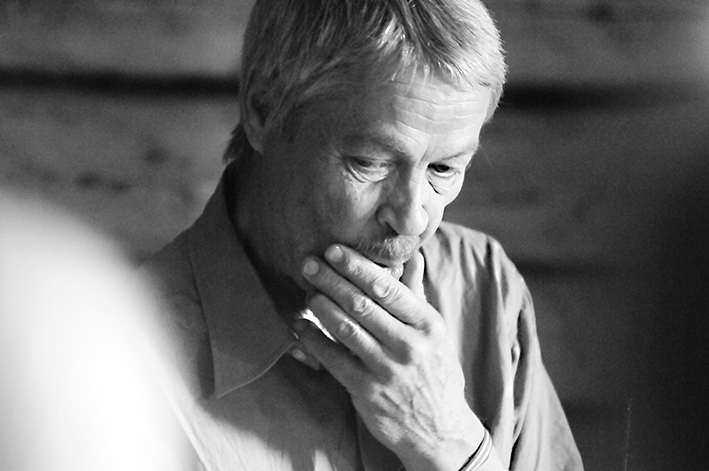
Roland Keijser at Hagenfesten in Sweden, 2011
From free jazz to fusion to folk and back
I was a jazz musician, then [later] I got interested in folk music. I lost my interest in this more sophisticated stuff, [like] Webern, Stockhausen, Darmstadt etc. I wanted just [to play] a wooden flute and [do] very simple traditional stuff. Maybe this is still my world – although I’m also a dedicated student of the theoretical foundations of Ragas, Maqams etc.
[During the] second half of the 1960’s I had a rather free jazz quartet [Roland Keijsers Quartet, with Bengt Berger and others], which around 1969 evolved into a kind of «world music» ensemble. [This ensemble] took the name Arbete och Fritid, «Work and spare time» [a better translation of the band name would be Labour and Leisure]. I read a book by Herbert Marcuse [this is prob. Marcuse’s Eros and Civilization], which played around with this terminology.
But also during the early 1970’s I played with a very special Swedish group. We finally chose the name Blå Tåget (Blue Train) [for this band]. [Blå Tåget] is the name of a [fun fair] train in Stockholm, in the region called Gröna Lund [a fun fair]. Here people ride carousels and have fun, and there is this «ghost train» [called Blå Tåget]. Formerly we had used the band name Gunder Hägg. This was [taken from] the name of a famous Swedish long distance runner, who took a lot of prizes during the 1940’s.
He was very well known in Sweden, [in fact] he was very good [he set 15 individual world track running records]. But at the time he got paid [some] very [small amounts], [so in 1946] he [was disqualified for life]. You couldn’t do that [– take money –] at the time. Nowadays of course, the most outstanding football players, and the lot, are billionaires. There is so much money involved [today].
But in those days in the Olympics you were not supposed to get any payment, so he was disqualified. We took his name for the band, but his family found out and did not like it. So we had to change the [band] name.
Most of the members [of Blå Tåget] were not musicians in a narrow sense, they were poets, most of them slightly older than me, already rather established as young poets, publishing in important newspapers and magazines. Some were painters, but they wanted to form a music group. At that time in Sweden — in my generation — there was so much happening. When I played with this group, they wrote very good texts, but they didn’t know exactly how to sing or play in the beginning …
It was the time of this whole political left wing uprising and the Vietnam War. There was also a fantastic rebel movement [rebellrörelsen], as we called it, in Sweden, inspired by Mao Tse Tung. Most of my friends were more or less involved with that movement, and they were really hardcore. But later it became a very strange and not so healthy sectarian thing.
The first concerts were more like performances, I would say. And then suddenly they learnt how to play and sing very well, made a lot of records, but as a musician I thought maybe I should do other things. And I left. The others continued with the band. Some of them are not with us anymore. But some of the guys are still alive. [Soon] they will publish a book about this band in Sweden [Tore Berger, Leif Nylén, Torkel Rasmusson: I Tidens Rififi – Historier om Blå tåget, Nordstedts 2012]. But my jazz musicians friends at the time could not understand how I found it interesting to play with that group.
In the group Arbete och Fritid we used PA systems and amplifiers and the whole thing. But earlier in the late 1960’s it was basically a free jazz quartet [see above]. And then there was a shift in members, and it was the time of late 1960’s — early 1970’s and the «music movement» which happened in my generation. Most people involved in this were not from the jazz background, more rock’n roll, electric guitars, et cetera, et cetera. More and more of that, and after a couple of years as a saxophone player you felt kind of alien to this environment.
I remember one time. We had a really compact wall of electric guitars and bass and I thought maybe my Chinese Suona can work … The sopranino is the smallest and sharpest one of the lot. And it did! It has such a sharp sound and it cut right though these fucking electrics [even] without a microphone!
When I blow my horns I like to move around a little, not standing still and fixed. Later I bought a mic, [that] I could put on the bell [of my horn]. But at the time I was using several different instruments. And then I had to use this stuff for my body …
Later a Moroccan friend borrowed it — [and] later he suddenly left Sweden [with the horn]. He made all the mistakes you should make if you don’t want to stay in Sweden as a North African man. And when he disappeared suddenly from Sweden, he didn’t give it [the Suona horn] back to me… [but] it’s ok.
He was a quite intelligent guy, it was easy for him to catch up with Swedish, but he didn’t attend the classes. But [he was good with Swedish] women … There was an older Swedish [female] psychiatrist who met this man on a tourist trip to Morocco, and she thought, «Oh, what a nice boy!», and then she brought him [back] to Sweden. And there he noticed all the other nice Swedish girls…
With another Moroccan friend living in Uppsala, Abdelghani Najraoui, the drummer guy, in the early 1990’s, we went together to Morocco, and very fast I could connect with musicians there. Later I went [there] on my own several times during the 1990’s and brought some of the musicians from there to Sweden for a couple of tours with Kalousch, the group which I was very much involved with during the 1990’s. And still am to some degree.
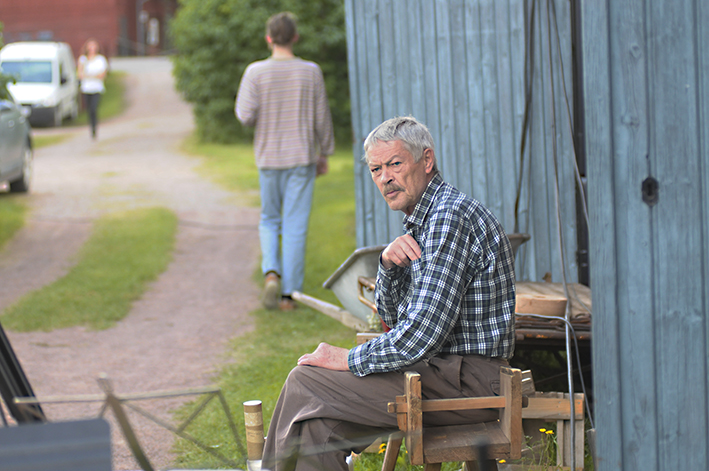
Soon ready for action: Roland Keijser is preparing for the concert with Kege Snö at Hagenfesten in Sweden, 2012
Woodshedding
In 1970 I moved to Stockholm. The following one and a half years were very chaotic, until I moved out to [my] forest cottage during the autumn of 1972. But before that I also spent some time in Gothenburg, where dramatic things happened, which made it necessary for me to go somewhere else.
First I went to Uppsala, where I used to live before. Our band [at the time] was looking for a house in the country side, [this] was a trend at the time – to move out of the city. We found some old railway station house we could buy for cheap. Some of the guys in the band started families with children.
[As soon as] they bought a house in the province, most of them wanted to build a music studio. But I was more interested in the possibilities of growing some carrots. And there was this ideal of collective living [and sharing]. Suddenly I found a small cottage in the forest not far from where I grew up [here in Dalarna], so I moved there alone in 1972. I thought it would be a good place for reparation. We had to tour a lot and there were all the drugs and shit, so I needed some rest in the forest with the birds.
Partly, what happened in all the turmoil of the late 1960’s and early 1970’s, was [that] suddenly these famous, outstanding Indian musicians had concerts in Stockholm. And we could easily get records from all over the world. Things opened up very much at that time.
My dear drummer friend Bengt Berger — «Beche» — had spent one year in India, before I met him around 1968/69. Later he [also] went to Ghana to learn African percussion. We had a [joint] friend — who died last year [2011] — Kjell Westling. He played all instruments, but mainly the bass clarinet.
When I moved out to the cottage, the two of them visited me one summer day in 1977, we got into the woodshed at my place and played there several days and nights. It was [all] recorded. On this recording — it was named and released [this year] as The Vedbod Tapes — Bengt is playing the South Indian drum Mridangam, which he learnt [to play] in India. [The Vedbod Tapes were released on the lable Country & Eastern, in 2012.]
There is one tune [on these recordings], Karnatic Investigations. This specific track, though, is not from the woodshed, but from inside that main house. Karnatic is the name of South Indian music, [so] not Hindustani [music]. Westling is playing harmonium, Beche is playing percussion and I play flute. It’s not very serious, I have the wrong flute… but it has something.
The same thing [discovering and studying world music] happened among our old idols, the Americans. Don Cherry came to Sweden at the time. And Bengt played a lot with him. I played just a few times [with him]. But Don was living in Sweden in the 1970’s, married to a Swedish woman.
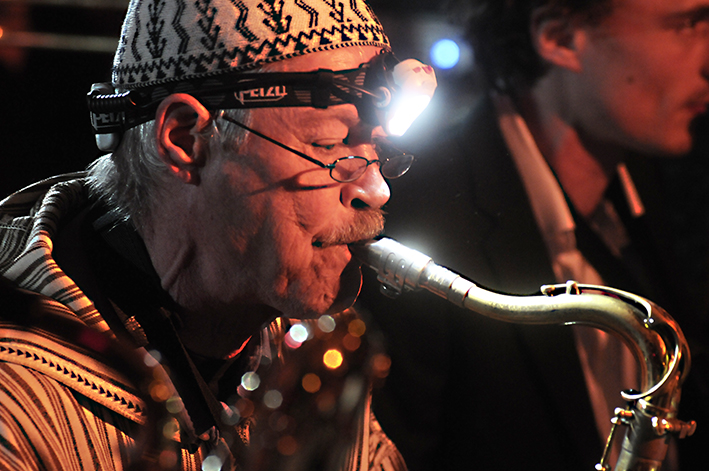
Roland Keijser with Umlaut Big Band, Hagenfesten, 2012
Macrobiotics: A Leave of Absence
And then I was about to stop playing. [There was] this accident [that] helped me. You know a circular saw, the big ones? There should be two people when you work with that stuff. So I was lucky, … I could have cut my whole hand off. The accident helped me to take a rest from music. It was almost 10 years, I didn’t play.
When I quit music, I got involved in the so called macrobiotic movement, Chinese/Japanese philosophy and inspiration, alternative medicine. Of course I was doomed to be attracted by this macrobiotic philosophy about food and stuff. My mother is from Midwest Sweden, the province of Värmland. Her family had 11 children. When I was a child, during summer holidays I always went there and her sisters were working in various shops where they sold ice cream. I was at the time the popular new little child in the family, so I drove around on a bicycle and got ice cream all the time. I was spoiled with that shit for a couple of years. Now I never eat ice cream.
I started my own small magazine, worked as a teacher, traveled to Amsterdam, London, Finland, to [the city of] Turku, in Swedish it is called Åbo. I [still] have friends there from the time when I did this macrobiotic thing.
In the 1970’s some of these people in Åbo and elsewhere were heavily involved in left wing political movements of various sorts. «There has to be something else, something is missing», that was the way they felt. And then they heard about this macrobiotic thing – you have to take care of your own health and your body. Some years [before] they were really hard core political people. So I did that for some years, and then I started to play again.
After a while I got a little fed up with this international organization [of macrobiotics]. It was directed by the Japanese man called Michio Kushi, living in Boston, who was one of the missionaries sent to America by this old Number 1 macrobiotic guy Oshawa. And [Kushi] was very inspiring, but his American students wanted to organize a trademark, taking control of the whole thing.
When I started, it was more of a hippie feeling, no laws, except non credo, creative, improvisational. So I got a little fed up with it. I met some old musician friends, who wanted me to start again. I moved to Uppsala together with a Danish woman, Kirsten Holm, who had been staying with me a couple of years at the forest cottage. When our daughter Maria was growing up, it was a little bit lonely for her in the forest, so we moved to Uppsala and met old friends. And around 1986 I started playing music again.
Nowadays I eat rice and all vegetables, beans, salmon, some chicken, some eggs, but not much, cheese and butter and milk, not pig, or cow… lamb sometimes, but not very often. I am not a complete so called vegetarian. I don’t like sweet things, but of course I have been drinking now for some years, but I don’t like sugar. When I moved to the forest, I completely quit drinking and smoking – not cigarettes, but the other, the bebop tobacco, because there was a lot of that for some years. I prefer beer or wine to that now.
Back in line: The 80’s
Amazingly, it was not hard to bring the technique back. All those years the music was going on a bit in my head and my fingers were imitating playing saxophone. And then in 1986 I started playing again. 1980’s were a kind of reaction answer to what we did in [the] 1970’s and 1960’s, [this was] the yuppie era, reacting on the hippie era.
I began playing with various jazz and folk music groups, one of them was called Chapter 7, led by my old drummer friend Bengt «Beche» Berger. We toured a lot, we played at the Chicago Jazz Festival, my only trip to the States.
And then I formed a trio, who made the record «Tallars Tal» for the short-lived label IAM Records in 1990. We called ourselves Triple Heater, but the name didn’t exist when we made the record. It came later. Triple heater is the name of the acupuncture meridian going up in this finger, my left ringfinger, exactly the one that I happened to damage in the sawing accident…
I played in this trio with a very good bass player, Peter Janson. He was actually married to Nina de Henney for several years, and they have two or three children. Imagine a family with two double bass players! Then there was the drummer, Henrik Wartel, who was here last year, at the Hagenfesten with the Moroccan band I am in, Kalousch, but he is a white Swedish Caucasian guy.
We made one record [in Triple Heater]. We played mostly our own themes: some folk music inspiration, and variations. In this trio I also played one of the odd instruments, the Bombarde (a shawm of alto pitch from Bretagne). I also used the Swedish cow horn and some flutes. That recording was made at a very early stage. Then we toured a lot for 3 years, we had no chance to make a new recording.
The plan was to make [the record] an LP, at the time [in 1990, the standard was the] LP format. Then it happened that suddenly the company [decided that] «Oh, we have to follow the new [standard] format!», and they pressed [it as] the CD. It is still [just] 45 minutes of music, but it is a CD.
We played in all of Scandinavia, the Baltic nations, Russia and Cuba, Havana, once, and in the South of France in a big festival, but besides that not so many international gigs.
We sold the CD in the Soviet Union, but then we realized we couldn’t use this fucking stack of roubles. So in Klaipeda, Lithuania, there was a jam session late night, and I wanted to sell the CD, and then the guy told me, «Wait, I got a salmon in my bag!» He wanted to trade it for the CD. [We said] «OK!», and we went to the kitchen to get the taste of it – I got the salmon and he got the record.
The bus ride back home was long. We stopped in Riga somewhere, and I asked the woman in the house about the salmon, because it would take a couple of days before we arrived home. She took a big thick Russian-English dictionary and then she went “HEAD!”, then “FIRST!” and finally “BAD!” And then she took a lot of salt and salted it. I brought it home and I ate it all.
Tour Anecdotes From the Nineties
[This] was exactly 1991 or 1992, just after the collapse of USSR, and then we were in Vilnius, and you could still see the places where the drama was.
There was this Estonian guy Mati Brauer who helped us and was our «mouth», the speech, he warned us: «Don’t drink that, it can be very bad!», but we were lucky, we were ok, we survived this «improvised» beer sold at the Moscow central station. And easily we could find some vodka and some Armenian cognac, but not a glass of wine or some beer, and the mineral water was more expensive than the vodka.
In Riga, before the gig and after the party on the boat, we were really thirsty for a beer or something like that, but we were in that very delicate situation confronted with this endless nightmare of only white & black colors: black coffee, black special Baltic «Balsam» and white porcelain cups and cans… Probably we were in need of some beautiful postcard, rich with golden colors… Well, the water on stage was very rich in healthy minerals… It had this strong mineral taste like if your health is bad. Funny!
Some years earlier we [had been in] Finland, in a small village outside Helsinki, where we played at a Christmas party. On our way back we were taken to a sauna, and the heat was not the electrically dry and uncomfortable one, but [the one from] traditional wood fire — very sweet. [Very much] opposed to my earlier experiences of modern Swedish «saunas».
In the room in front of the actual sauna you could sit down and have some vodka and beer — and very salty moose meat. And the traditional fish soup, Uha, which I think also is popular in Russia, you can also take caviar with it. You had this [sauna] routine and afterwards you would go outside and jump into the snow, … [it was] very nice.
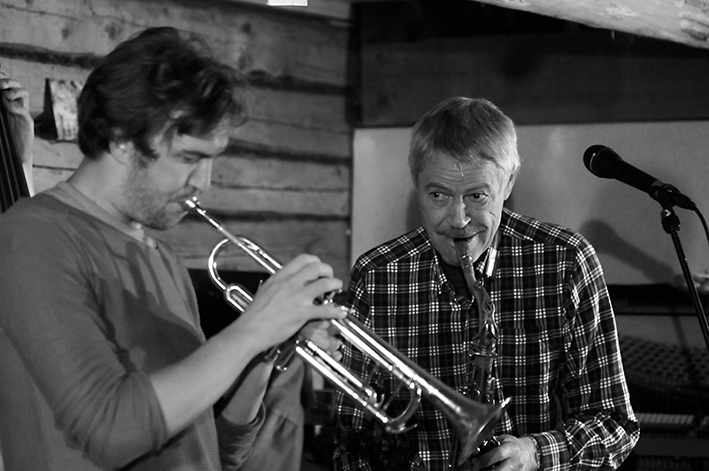
Hagenfesten in Sweden, 2012: Niklas Barnö and Roland Keijser in Kege Snö
Kege Snö
I made a record called «Blåshål» (which could be translated as «Blow-holes» or «Holes of wind») with Mats Hellberg, my friend, [he was a] drummer. He worked as a drum teacher in Gothenburg, but he had his roots in this nearby village Mockfjärd, just 10 km from [here at] Hagen. I was born there and lived my first two years there.
When we were working on the album, I had to visit his home to mix the record. And then he told me: «Roland, one day there was a young crazy player knocking at my door, he had some [kind of] relations to Dala-Floda, I don’t know what, but he wants to play!»
This was how I met [the bass player] Joel Grip, and we played a little at the drummer’s house in the basement. And then Joel called [his friend] Niklas Barnö. Wow! What a trumpeter! I [have known] Niklas’s father since a long time before. He is a baritone sax player and he worked his whole life as a producer for Swedish TV making jazz and classical music, and all. He is here at Hagenfesten every year. And always when we play in Stockholm he and Niklas’s mother [come to see us], very nice people.
We played a couple of gigs, I think, the first time [here] at Hagen — just as a trio without Niklas. Then later the following year [we played] with Niklas as a quartet. We played a couple of times in Stockholm and other places, and then Mats died. Niklas and Joel then said: «Maybe we should ask Raymond Strid?» I knew Raymond from several years before, but had not been so much in touch with him. So then [Raymond Strid] entered the group.
During one of the first so called rehearsals with Niklas and Joel I brought a lot of [scores] and music. For myself, I was more curious and interested in my new pieces, I remember that very clear[ly]. But what Niklas especially and maybe also Joel really liked, what they were really interested in, was the material I wrote when I was their age, like 23 or 24. It was funny.
We made a little tour in France in May 2011 with this group, we called it Kege Snö.
For me, the quartet I had in the late 1960’s, ah! It was very fun. We played a lot, and we made recordings, but they were never published. And I listen to them now, which requires very hard work: sometimes it is very good, but sometimes very long, too much smoking, you know! Oh! Crazy music, but sometimes good.
And also my dear friend the trumpeter from that time [Torsten Eckerman], he had a nice feeling for the music and was very good in fixing gigs, but he could play about 25% of what I wrote. [Now] Niklas can play 200% [of it]. So it’s a bit sad, [thinking back at] that group in that sense. Now [however,] it is very nice for me — at this age [68] — to hear more of what I once was dreaming [of]…
There is a lot of this old material we use, and Niklas is so sh-sharp! There are things happening [now] as well, which we didn’t do with my quartet in the 1960’s. And also for me it is great to once again play the kind of music which I stopped playing while [being] with [the] Blå Tåget and all this. But also during the [intervening] time I [have] played very straight Swedish folk music, with just violin and soprano saxophone. I have [made] lots of records with that. I wrote very much music in that direction also.
What I find funny in life is that I like to do lots of different things. One night I can play classical 50’s be-bop and then Kege Snö and then Kalousch, the Moroccan music, and then some traditional Swedish folk music. And I like them all. Sometimes I like to specialize more, not just mixing it all up. With Kege Snö, however, we do lots of them all together.
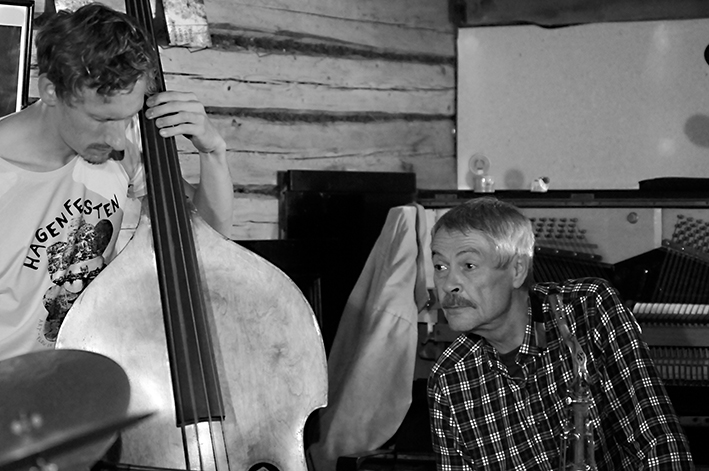
Hagenfesten in Sweden, 2012: Joel Grip and Roland Keijser in Kege Snö
The Present Tense
Every summer in my town [Uppsala] I play a lot of summer concerts. Among other things I play with an 88 year old piano payer who is still very strong, Folke Larson, [a] local talent. He wakes up at 7 in the morning, playing and recording, and sends me CD’s with his latest stuff, he is really like that. In spring of this year I sent him some notes, some written music and recordings of Thelonious Monk solo piano, which he had never heard in his life. Some weeks later he sent me his recordings of this Monk music, and he plays it so fucking great! So we play it together, and we [will] play again in a couple of weeks. He is really amazing.
And also I play with this 1967 Tallinn Quintet [I was in.] [The] leader of the band, Kurt Järnberg, [has] made a double-CD with recordings from the 1960’s and we play again together, [the] same guys, same tunes like 45 years ago, and I like it. Not too often. Not every day. Every now and then. It is a good feeling with those guys. We didn’t split the group because we hated each other, or [because we] had severe problems, just individually we had other important things to do. But we still love each other, it’s a good feeling.
There are many things I would like to work on at this time, but music takes a lot of space, as it should, and I like it. Sometimes I can [earn] a few kronor [on top of my pension], because my pension from the Swedish government is just enough for rent and a couple of beers.
Post Scriptum
A minor «after-thought»: I think «sophisticated» — or «advanced», or something like that — is more [suitable] than «theoretical». In my youth I was very much engaged in various modernistic/avant-garde expressions in the fields of literature, art and music, also so-called «modern art music», but much of that faded away… That’s why I have dropped the names of some icons [here] – but if you want you can omit them …
Well, I have a strong theoretical and philosophic vein, which never left me when going into folk music, so I had to rephrase it. For me there is no exclusive opposition between the love of a simple wooden flute and the passionate interest in music philosophies and theoretical foundations of older times and distant environments …
Text: Sergej Starkowski
Photos: Jan Granlie

